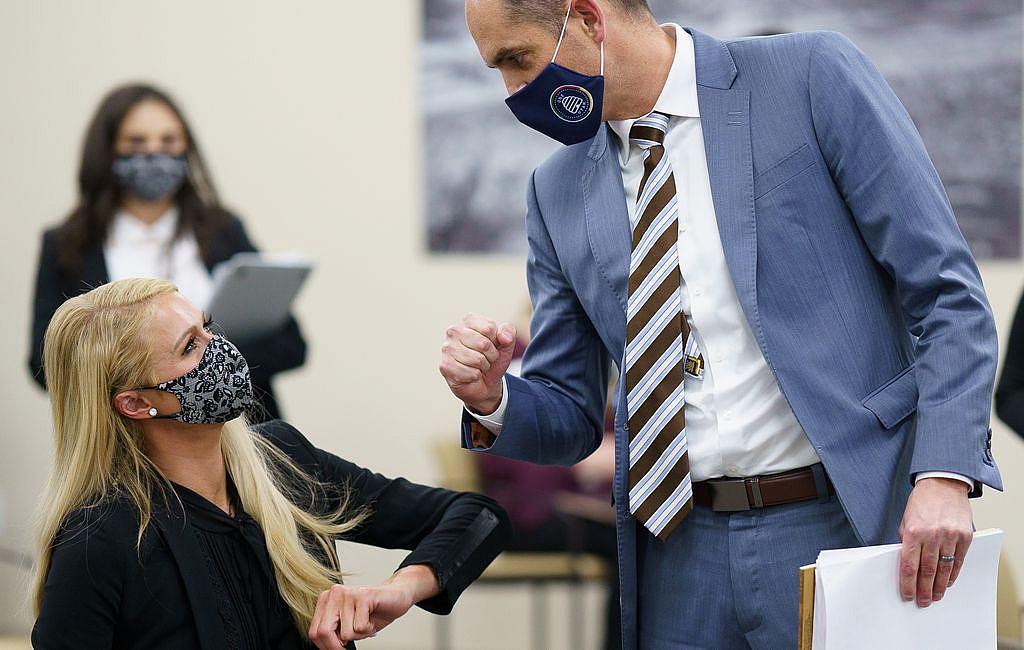Increased oversight is coming to Utah’s ‘troubled-teen’ industry
This story was produced as part of a larger project by Jessica Miller, a participant in the 2019 Data Fellowship. Her project focuses on the troubled rehabilitation industry in Utah, where youth residential treatment centers are abundant but lack oversight.
Also in this series:
Paris Hilton says she was abused while at Utah facility for ‘troubled teens’
Part 2: Provo Canyon School’s history of abuse accusations spans decades, far beyond Paris Hilton
Paris Hilton creates petition to shut down Provo Canyon School
Paris Hilton leads rally against Provo Canyon School
Why we raised money to get reports on Utah’s ‘troubled teen’ treatment centers
Part 3: Utah faces criticism for its light oversight of ‘troubled teen’ treatment centers
Part 4: Former students at Utah troubled-teen centers say their reports of sex abuse were ignored
Utah inspectors find no problems in ‘troubled-teen’ facilities 98% of the time
A girl, her hands zip tied, was forced to sit in a horse trough at a Utah ‘troubled-teen’ center
Utah officials want your help as they draft new rules for the ‘troubled-teen’ industry

Paris Hilton bumps elbows with Sen. Michael McKell, R-Spanish Fork, after a vote on SB127 in the Senate Judiciary, Law Enforcement, and Criminal Justice Committee in Salt Lake City, Feb. 8, 2021. Gov. Spencer Cox signed the bill into law on Monday
(Trent Nelson | Tribune file photo)
More regulations will soon be coming to Utah’s so-called “troubled-teen” industry, after the governor on Monday signed legislation that will place limits on use of restraints, drugs and isolation rooms in youth treatment programs.
It’s the first time in 15 years that Utah legislators have enacted more oversight on the nearly 100 youth residential treatment centers in the state. It was one of 56 bills that Gov. Spencer Cox signed on Monday at his rural office in Cedar City.
Utah has by far the most troubled-teen centers represented by the leading national association, and has a reputation for being the nation’s epicenter for youth treatment programs. Over the past five years, more than 12,000 children from across the country have been sent to Utah for treatment.
The bill’s sponsor, Sen. Mike McKell, R-Spanish Fork, has estimated that about 90% of those children are from other states.
Some are sent by their parents, while others are ordered into treatment by a judge after breaking the law or are foster kids brought here because no place in their home state will take them.
The Salt Lake Tribune has detailed allegations of abuse, mistreatment and chemical sedation at these Utah facilities.
Allegations of abuse have dogged the industry, and came to a head during this year’s legislative session after former residents, including celebrity Paris Hilton, testified about mistreatment they say they experienced in facilities in Utah and elsewhere.
State senators who heard the emotional testimony said they were embarrassed about what was happening and apologized to Hilton and others who were mistreated.
Under the new law, treatment centers will be required to document any instance in which staff used physical restraints and seclusion and to submit reports to the Utah Office of Licensing, which is the industry’s primary regulator. The law also prohibits programs from sedating residents or using mechanical restraints, like a straitjacket, without the office’s prior authorization.
The Office of Licensing will now be required to conduct four inspections each year — both announced and unannounced — and will receive $638,000 in additional funding for eight new full-time state licensing employees to achieve that aim. Public records show that the office currently inspects most facilities just once a year.
Some critics have said these new regulations aren’t enough. McKell and other advocates have said they’ll keep pushing the issue in future legislation.
“This bill gives a voice to so many people who’ve been harmed in these facilities in the state of Utah,” McKell said. “And that’s the real tragedy. And I hope the regulation — the increased site visits, the new regulators, the new inspectors — I think, overall, [will be] such a drastic improvement to the system.”
[This story was originally published by The Salt Lake Tribune.]

